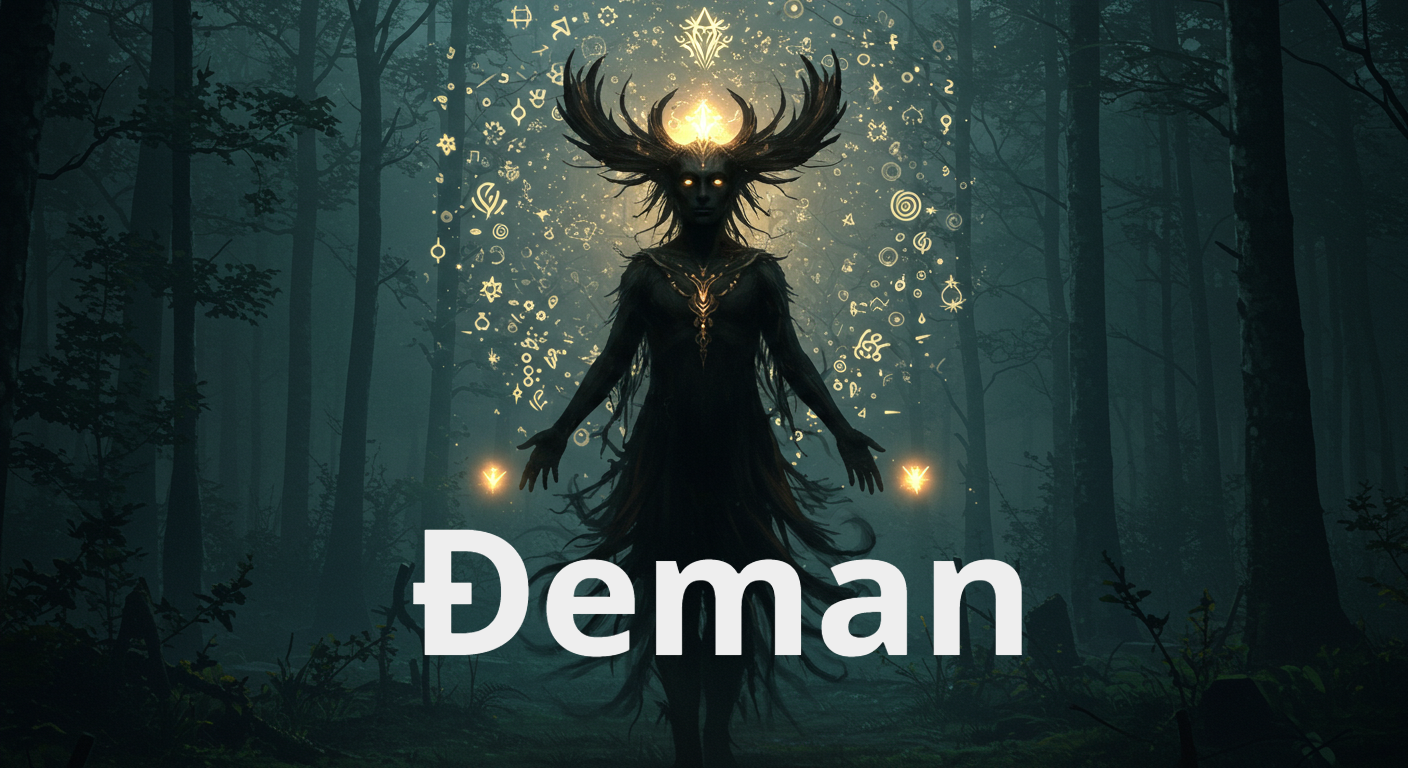Why the Word “Đeman” Sparks Curiosity
Some words instantly spark curiosity the moment we hear them. “Đeman” is one of those terms that invites questions, associations, and even a sense of mystery. For some, it appears in folklore and literature. For others, it represents a symbolic concept tied to culture and storytelling. No matter where you encounter it, đeman holds a weight that lingers in the imagination.
When people search for this word, they are often looking for clarity—what does it mean, where does it come from, and how does it connect to modern life? To understand đeman fully, it is important to explore not just its definition but also its origins, cultural depth, and evolving interpretations in today’s world.
What Does Đeman Really Mean?
At its simplest, đeman is a word rooted in language and culture, often associated with imagery of something otherworldly or symbolic. Depending on regional interpretation, it may be used to describe a figure in folklore, a metaphor in poetry, or even a reflection of internal struggles.
Unlike generic words, đeman carries a tone of intensity. It is rarely used casually and almost always appears in contexts meant to provoke thought, emotion, or imagery. That alone makes it more than a simple dictionary entry—it is a cultural marker that blends meaning with narrative.
You Might Also Like: Giniä
Origins and Etymology of Đeman
Every word has a story, and đeman’s etymology reveals just how layered it truly is. Tracing back through historical language structures, scholars have linked it to terms associated with spirits, unseen forces, or characters in epic tales. Over time, these associations shifted as oral traditions evolved and different cultures adapted the word into their own storytelling.
In some regions, đeman was spoken with reverence, in others with fear, and in still others with fascination. This fluidity reflects the richness of the word’s journey across generations, reminding us that language itself is alive and constantly reshaped by context.
Đeman in Literature and Folklore
One of the most fascinating aspects of it is how it has been represented in stories. Folklore often uses the term to describe characters who exist on the edge of human understanding—sometimes protectors, sometimes tricksters, and sometimes embodiments of chaos.
In literature, đeman has been employed by poets and novelists to capture complex emotions. It can symbolize temptation, struggle, or even the duality of human nature. This adaptability makes it one of those rare words that resists confinement, always taking on new shades of meaning depending on the storyteller’s intent.
Symbolism Attached to Đeman
Symbolism is where it truly shines. It is more than a figure or concept; it often embodies deeper themes:
Conflict and Duality – Representing the constant struggle between light and shadow, hope and despair.
Transformation – Serving as a metaphor for change, whether painful or enlightening.
Mystery – Symbolizing the unknown forces that shape lives and societies.
Because of its symbolic strength, đeman often appears in rituals, songs, and modern reinterpretations of ancient myths.
Đeman in Different Cultures
Though the word has specific linguistic roots, its essence resonates beyond borders. In some cultures, đeman aligns with the concept of a spirit or supernatural figure. In others, it takes on a metaphorical role tied to human psychology.
This cultural diversity adds layers to the word’s meaning. A person in one country might hear đeman and think of a mythical story, while another might associate it with inner demons or moral dilemmas. Such versatility explains why the word continues to spark interest in a globalized digital world.
The Modern Use of Đeman
Today, it isn’t confined to old texts or oral traditions. It shows up in:
Music – Where artists use it as a lyrical device to express struggles.
Cinema – Especially in films exploring themes of fear, transformation, or mystery.
Everyday Language – Often used metaphorically to describe personal battles or overwhelming challenges.
This modern usage demonstrates that while words may evolve, their core impact often remains unchanged.
Đeman and Personal Struggles
Beyond culture, many interpret đeman as a reflection of internal struggles. It can describe the fears, doubts, or negative forces a person faces daily. When framed this way, the word becomes empowering—not as something external to fear, but as an inner challenge to overcome.
This perspective has gained traction in self-help discussions, where traditional imagery of đeman is reimagined as an opportunity for growth rather than destruction.
Psychological Interpretation of Đeman
Modern psychology often borrows from mythology and culture to describe the human condition. In that sense, đeman can be seen as the subconscious fears or suppressed desires we battle within ourselves. Jungian psychology, for example, often speaks of the “shadow self,” which aligns closely with the metaphorical weight of đeman.
Understanding it in this way makes the word less about external forces and more about self-awareness. It shifts the narrative from something frightening to something deeply personal and transformative.
Đeman in Popular Media
The digital age has given it a new stage. Social media discussions, online forums, and modern creators reinterpret the term in memes, short stories, and visual art. This reemergence proves that the word is not stuck in the past; it is alive and adapting to new mediums.
Pop culture thrives on symbolic, mysterious language. That makes đeman an appealing choice for writers, directors, and artists who want to spark intrigue and emotional resonance with audiences.
The Mystical Appeal of Đeman
Part of what keeps people intrigued by đeman is its mystical undertone. Unlike words with clear and rigid definitions, it maintains ambiguity. That ambiguity is powerful because it allows individuals to project their own meaning onto it.
Mystery has always drawn human fascination. In the case of đeman, the lack of a single definition makes it more than just a term—it becomes a canvas for imagination.
Common Misconceptions About It
With such a complex history, misconceptions are inevitable. Some believe it is exclusively tied to negative forces, but that is not always the case. In certain contexts, it represents resilience, wisdom, or guidance. Others think it belongs only in ancient folklore, but modern reinterpretations prove otherwise.
Correcting these misconceptions helps reveal the full spectrum of what đeman represents, from shadowy myth to empowering metaphor.
Why It Still Matters Today
In a fast-moving world dominated by trends, it is rare for old words to hold relevance. Yet đeman continues to matter because it speaks to universal themes—fear, transformation, resilience, and mystery. These themes are timeless, ensuring that đeman remains part of both scholarly discussions and casual conversations.
It matters not just as a cultural artifact but as a reminder of how language shapes our understanding of the world.
How Artists Reimagine Đeman
One of the most exciting developments is how contemporary artists reinterpret the term. Through paintings, installations, and digital design, đeman is given new faces and fresh meanings. Some works portray it as a haunting figure, while others depict it as a force of rebirth.
By reimagining it, artists prove that even the oldest words can find renewed expression in modern creativity.
You Might Also Like: Hitaar
Future of It in Global Conversations
As globalization connects cultures more closely, words like đeman are entering wider conversations. Just as yoga, karma, and feng shui moved beyond their native roots, it has the potential to become a cross-cultural term. Whether it retains its mystical edge or shifts toward psychological interpretation, it will likely continue evolving in the years ahead.
Final Thoughts
It is more than just a word—it is a bridge between history and modernity, myth and psychology, culture and personal reflection. Its ability to transform, adapt, and resonate across time explains why it continues to capture attention.
For anyone curious about language, culture, or the mysteries of human experience, đeman offers a rich, thought-provoking journey. It is not simply a relic of the past but a living concept with the power to inspire and challenge us today.

